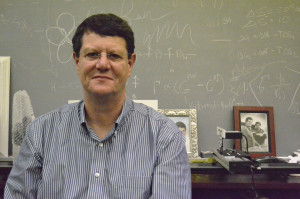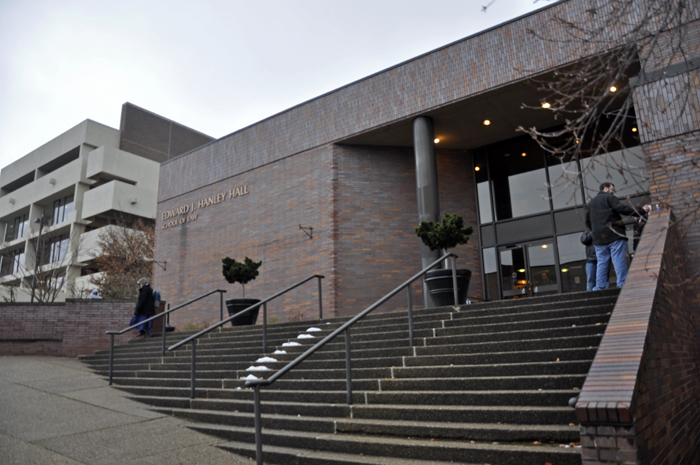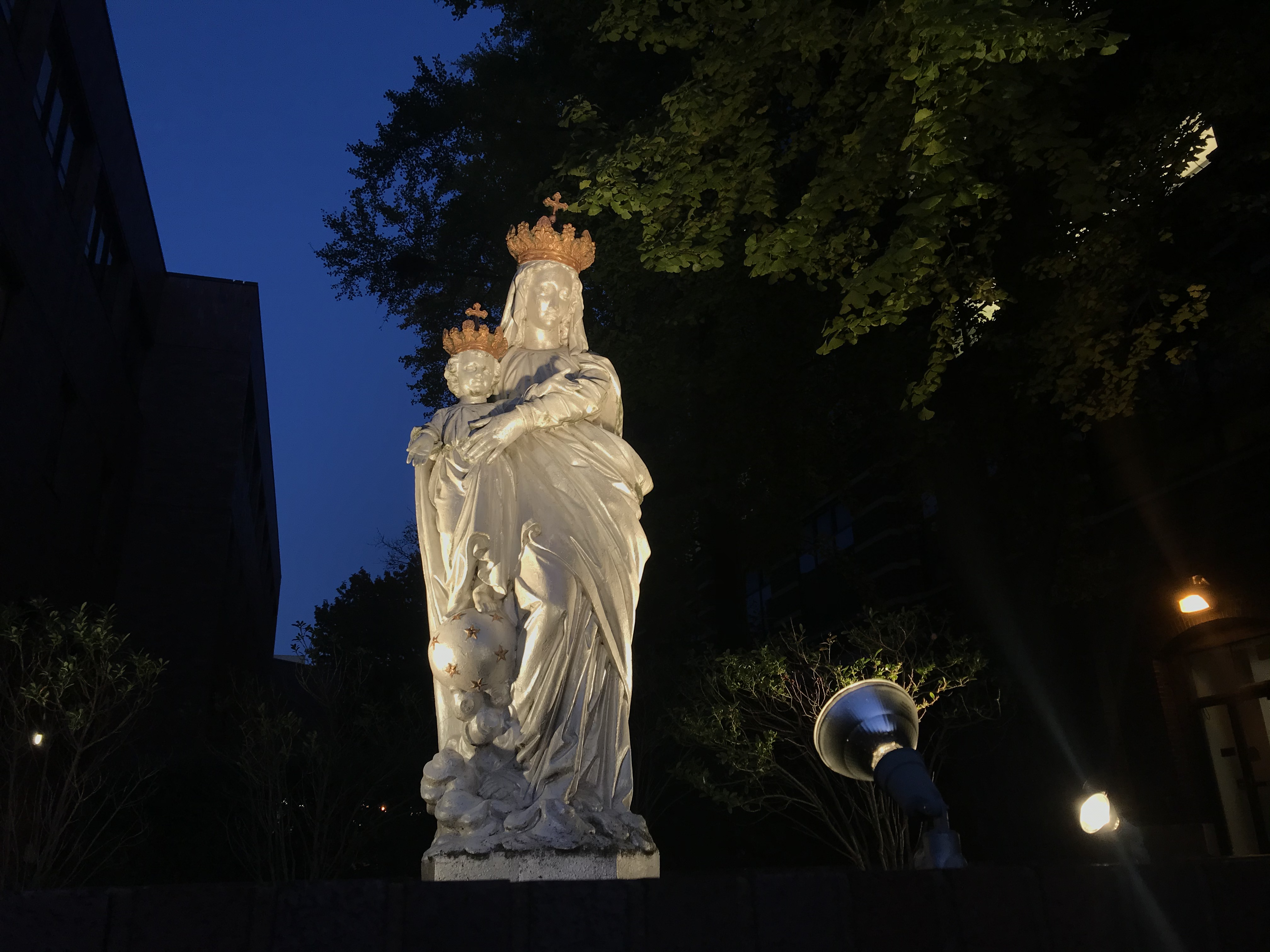
By Brittney Jackson | For The Duquesne Duke
Chemistry professor Jeffry Madura, who has taught at Duquesne since 1998, was named the University’s first Lambert F. Minucci Endowed Chair in Engineering and Computational Sciences.
In his career, Madura has received $10 million from private foundations for his research, and has had over 100 scientific papers published. Madura said being named chair exemplifies his hard work and research.
“It’s a nice recognition for the efforts that I’ve been pursuing in terms of computational sciences both from a research perspective and a teaching perspective,” Madura said.
Madura will serve as endowed chair for the next five years. During this time, he plans to continue writing grants, writing papers, exploring new areas such as 3-D printing and investigating emerging areas of science.
The chair was established in December 2012 through a $2 million grant, according to Bayer School of Natural and Environmental Sciences Dean Phillip Reeder. Minucci worked at Pittsburgh Plate and Glass while attending night courses for a master’s degree in mathematics at Duquesne. Minucci created forecast models which PPG still uses for paint production today.
Reeder said Madura was “the obvious choice” for the chair because of his record of academic accomplishments. Madura is a member of the University’s Research Hall of Fame, an American Chemical Society Fellow and the author of General Chemistry: Principles and Modern Applications.
Madura was also the recipient of the Duquesne Presidential Award for Excellence in Scholarship in 2007 and the Bayer School Award for Excellence in Service in 2004.
Madura is currently researching peptides in salt solutions and monoamine transporters on neurotransmitters. His students are currently working on computational research in his laboratory.
Graduate student Matt Srnec is currently studying the electronic structure of solids in Madura’s laboratory. Srnec said he “wasn’t surprised” to hear about his advisor’s appointment to endowed chair.
“It’s a very accurate reflection of his career and all that he has accomplished,” Srnec said. “Our research group, the University and the scientific community are very lucky to have him.”
Madura received his bachelor’s degree in chemistry at Thiel College and earned his doctorate in chemistry at Purdue University. In January 1998, Dr. Madura began working at Duquesne as an associate professor. He became a professor in 2004 and served as Department Chair from 2000-2010.
With Madura’s accomplishments and experience in mind, graduate student Kalyan Immadisetty said the professor deserved the appointment.
“I was very happy and thought [Madura] was rightly facilitated for his experience, knowledge and for his contribution to computational sciences,” Immadisetty said.
In addition to his teachings, Madura has conducted incredible research in the field of computational sciences. His past research includes antifreeze proteins at ice-water interfaces, the solubility of carbon dioxide in salt solutions and software development.
Madura has also had his research published in numerous journals, including ACS Chemical Neuroscience, Biophysical Journal, Journal of Physical Chemistry and the Journal of the American Chemical Society.




